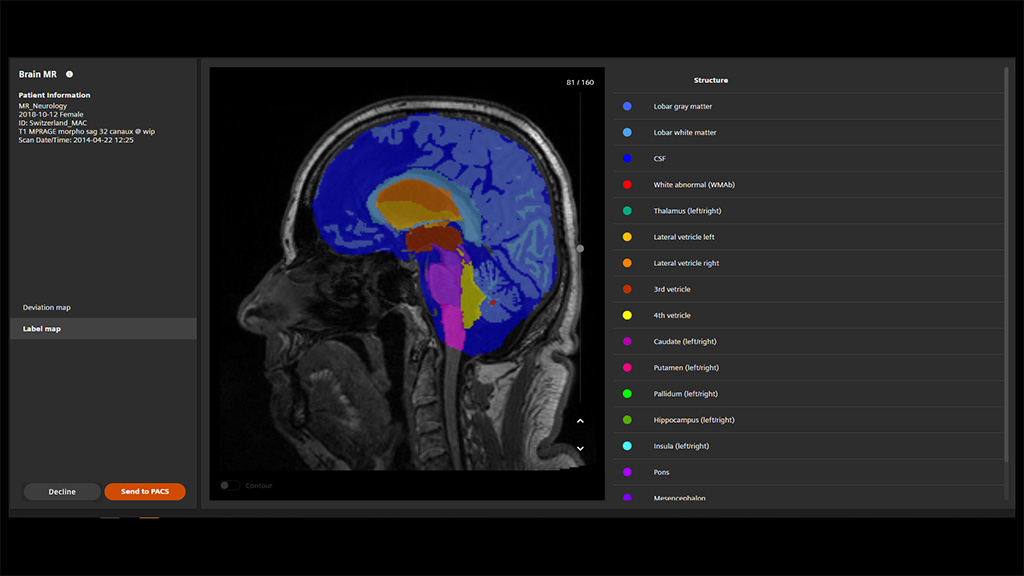AI-Based Assistants Smooth MRI Workflow
By MedImaging International staff writers
Posted on 31 Dec 2019
Two new software assistants based on artificial intelligence (AI) free radiologists from the burden of performing routine activities during magnetic resonance imaging (MRI) examinations.Posted on 31 Dec 2019
The new AI-Rad Companion apps, intended for use during brain and prostate MRI scans, are designed by Siemens Healthineers (Erlangen, Germany), but can be used on devices from different manufacturers. The software apps seamlessly integrate into the existing clinical workflow and comply with Digital Imaging and Communications in Medicine (DICOM) standards. Clinical images and all supporting information are automatically available in the picture archiving and communication system (PACS), depending on the radiologists’ requirements.

Image: The AI-Rad Companion Brain MR for Morphometry Analysis (Photo courtesy of Siemens Healthineers)
The AI-Rad Companion Brain MR for Morphometry Analysis can automatically identify about 50 brain segments on MRI images, measure their volumes, and compare the results to data in a normative reference database for brain morphometry made available by the Alzheimer’s Disease Neuroimaging Initiative (ADNI). The results are fed into a report where deviations from the norm are automatically marked. Radiologists can thus provide the neurology department with objective, quantitative data relevant to differential diagnosis and therapy management.
The AI-Rad Companion Prostate MR for Biopsy Support automatically segments the outer contour of the prostate, which can cut the time needed for this routine activity down to just a few seconds. The radiologist then simply marks the suspect areas and hands the annotated MRI images to the urologist for fusion with the ultrasound images during the biopsy. The targeted, MRI-supported biopsies can make it easier for the urologist to detect significant prostate carcinomas and improve the quality of patient care.
“With the new AI-based assistants, we are expanding our diagnostic offering to help our customers increase efficiency and improve the quality of care. We firmly believe that AI will help physicians deal with their workload and benefit patients by helping achieve an improved, patient-focused decision-making process,” said Peter Koerte, head of digital health at Siemens Healthineers. “Further applications for radiography and radio oncology will follow for the AI-Rad Companion family.”
Related Links:
Siemens Healthineers














